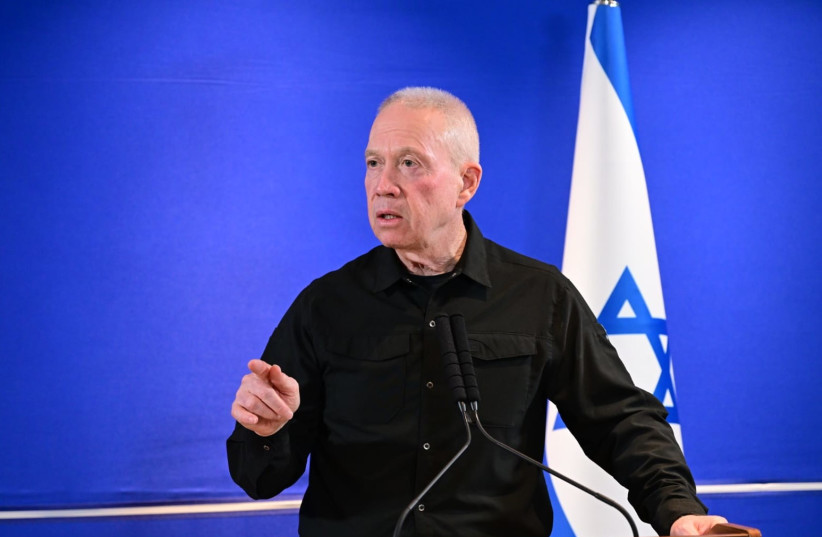The Knesset’s Foreign Affairs and Defense Committee (FADC) convened on Monday for the first classified meeting on the haredi draft bill, after three meetings in the past two weeks were devoted to opening statements by Members of Knesset and civil organizations.
Attendees at the meeting included Defense Minister Yoav Gallant and IDF representatives, alongside the committee members.
'IDF lacks 10,000 soldiers,' says Gallant
According to a number of reports, Gallant said during the meeting that the IDF lacked 10,000 soldiers and that it was acting to recruit 3,000 additional haredi men in 2024, with the goal being to draft 50% of each haredi graduating class within five years. According to a report by Makor Rishon, Gallant explained during the meeting that the reason the government was unable to come up with a bill proposal earlier this year were disagreements over who would sponsor the bill, what the economic sanctions would be on draft-evaders, and what would happen if draft quotas were not met.
According to a press release of his comments in the committee, Gallant warned that the vectors of the IDF’s manpower needs were going in the “wrong direction” – the IDF mandatory service dropped from 32 to 30 months on July 1, and the FADC’s refusal last week to extend the cutoff age for reservists meant that some 6,700 reserve soldiers were free to leave their reserve duties. Unlike aircraft and munitions, Israel cannot purchase soldiers from foreign countries, and must draft from its own population, Gallant said.
Before the current war, the national feeling and trend was that Israel was safer than ever before and that technology for defense and with the air force meant that the infantry forces could be much smaller, which in turn meant that fewer soldiers were needed, and everyone could serve less time.

However, Gallant said that now that the IDF has lost an entire brigade’s worth of soldiers (a brigade is usually around 1,000 soldiers), only counting those dead and without even counting the much larger number of wounded, more service is needed from everyone.
He said that this means longer mandatory service, longer reserve service, and an influx of new recruits from the haredi (ultra-Orthodox) community. The defense minister implored the FADC to extend the service of both mandatory and reservist soldiers as well as to address the haredi integration issue because “the IDF is for everyone.”
Gallant pointed out that the Defense Ministry proposed two bills in February – to lengthen mandatory service to 36 months and to extend the cutoff age for reserves by five years – but the government was unwilling to move forward. Gallant explained that this was due to opposition both from the Finance Ministry, over possible damage to the economy, and from the attorney general’s office, over constitutional lack of equality in increasing the burden on some, while continuing to exempt others from service.
The government promised in a High Court of Justice hearing on June 2 that it would complete a new haredi draft bill by the end of the Knesset summer session on July 28. However, with the High Court rejecting the government’s argument in a ruling later in June that the state could no longer exempt haredim from service, it is unclear whether or not the bill will indeed pass into law on time.
The coalition decided last month to resume the legislative process of a 2022 haredi draft bill sponsored by the previous government, to shorten the procedure. The bill on the table in the FADC is therefore already being prepared for its second and third reading in the plenum.
However, FADC chairman MK Yuli Edelstein (Likud) has said that the move to resume the 2022 bill was purely technical, and that the committee was going to completely revamp the bill in order to meet the IDF’s current manpower needs.
